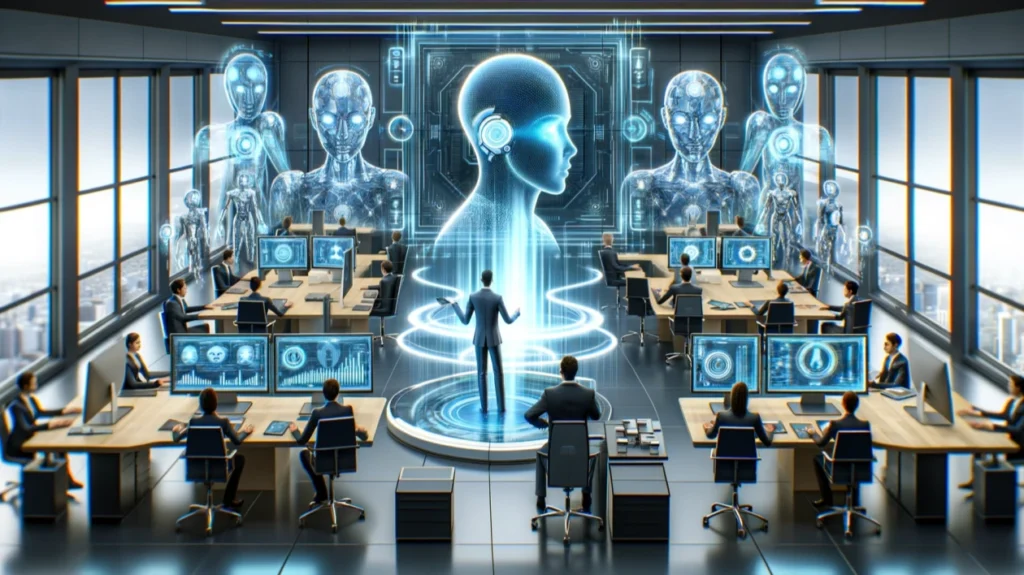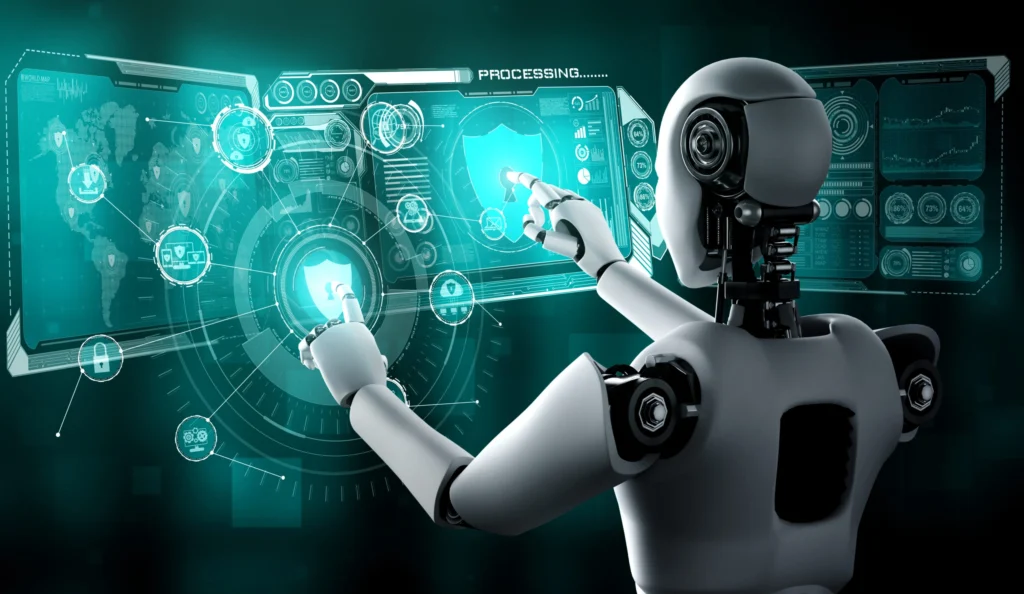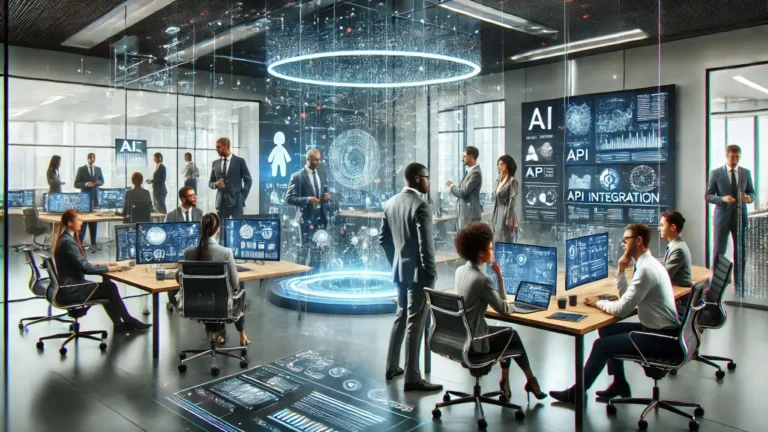Artificial Intelligence (AI) has rapidly moved from the realm of science fiction into the real world, revolutionizing industries and reshaping society as a whole. From self-driving cars to virtual assistants, AI is transforming the way businesses operate, the way we live, and even the way we think about the future. As AI continues to evolve, its impact on business and society is undeniable, offering both immense opportunities and challenges.
In this blog, we will explore the transformative role of AI, how it is reshaping industries, and the broader societal implications of this rapidly advancing technology.
What Is Artificial Intelligence?
Artificial Intelligence refers to the simulation of human intelligence in machines that are programmed to think and perform tasks like humans. These tasks include learning (from data), reasoning (drawing conclusions), problem-solving, perception (recognizing objects, speech, or images), and natural language processing (enabling communication). AI encompasses a wide range of technologies, including machine learning, deep learning, and natural language processing, each contributing to the broad applications we see today.
AI’s Impact on Business: Revolutionizing Industries

AI has already had a profound impact on several industries, from healthcare to finance, retail, and beyond. Here are just a few ways AI is transforming business:
1. Automation of Repetitive Tasks
One of the most significant benefits of AI in business is its ability to automate repetitive tasks, freeing up employees to focus on more strategic and creative endeavors. In industries like manufacturing, AI-driven robots and automation systems can perform tasks such as assembling products, managing inventories, and even quality control. This improves efficiency, reduces human error, and increases overall productivity.
In the service sector, AI chatbots are revolutionizing customer service. By handling basic inquiries and offering 24/7 support, chatbots improve the customer experience while reducing the workload on human agents. This not only enhances efficiency but also lowers operational costs for businesses.
2. Data-Driven Decision Making
In today’s data-driven world, businesses are increasingly relying on AI to analyze vast amounts of data and extract meaningful insights. AI tools can process and analyze data far faster and more accurately than humans, enabling businesses to make better decisions based on real-time information.
For instance, in marketing, AI can help businesses predict consumer behavior, personalize advertisements, and optimize pricing strategies. In finance, AI algorithms can assess risk, detect fraudulent activity, and automate trading, providing companies with a competitive edge in a fast-paced market.
3. Personalization and Customer Experience
AI plays a key role in enhancing customer experiences through personalization. By analyzing customer data, AI systems can recommend products or services tailored to individual preferences, which improves customer satisfaction and loyalty.
Streaming platforms like Netflix and Spotify, for example, use AI to recommend content based on user behavior. E-commerce websites, like Amazon, employ AI to suggest products that customers may be interested in based on past purchases and browsing history. This personalized approach not only benefits customers but also boosts sales for businesses.
AI’s Impact on Society: Ethical, Economic, and Social Considerations

While AI brings numerous benefits to businesses and consumers, its widespread adoption also raises several ethical, economic, and social concerns that need to be addressed.
1. Job Displacement and the Future of Work
One of the most significant societal concerns about AI is its potential to displace jobs. As AI and automation continue to improve, many routine and manual jobs are being replaced by machines, leading to job loss in certain sectors. For example, truck drivers may be replaced by autonomous vehicles, while retail cashiers could be replaced by automated checkout systems.
However, AI also creates new job opportunities in fields such as AI development, machine learning, and data analysis. The key challenge will be to reskill and upskill the workforce to adapt to these new roles. Governments and businesses will need to invest in education and training programs to prepare workers for the jobs of the future.
2. Bias and Fairness in AI Systems
Another ethical concern with AI is the potential for bias in algorithms. AI systems are only as good as the data they are trained on, and if the data is biased, the AI can perpetuate and even amplify those biases. This has serious implications, especially in areas like hiring, criminal justice, and lending, where biased AI algorithms could lead to discrimination and unfair treatment.
Ensuring that AI systems are transparent, fair, and accountable is crucial. Developers need to prioritize ethical AI practices, including diverse data sets and regular audits to mitigate biases in algorithms.
3. Privacy and Security
As AI systems collect vast amounts of personal data to improve services and make decisions, privacy and security concerns arise. With the rise of smart devices, social media platforms, and personalized services, there is a growing need for robust data protection laws and practices to safeguard user privacy.
Governments and organizations must implement strong cybersecurity measures and ensure that AI systems comply with data privacy regulations, such as the General Data Protection Regulation (GDPR) in Europe, to protect individuals’ personal information.
The Future of AI: What’s Next?

The future of AI is exciting, with new advancements and applications being discovered every day. We can expect AI to continue to drive innovation in areas like healthcare, where it can assist in diagnosing diseases, personalizing treatments, and advancing medical research. In transportation, AI-powered autonomous vehicles have the potential to reduce accidents and improve traffic flow.
However, as AI evolves, it’s crucial that we continue to address the ethical, economic, and social challenges it presents. By fostering responsible AI development and ensuring that its benefits are distributed fairly, we can harness its transformative power to create a more efficient, equitable, and innovative world.
Conclusion: Embracing the AI Revolution
The AI revolution is here, and its impact on business and society is already profound. From improving efficiency and decision-making in businesses to enhancing customer experiences and driving new job opportunities, AI is shaping the future in ways we couldn’t have imagined just a few years ago. However, as we embrace this technological revolution, it’s essential that we remain mindful of the ethical and societal challenges it brings. By fostering collaboration between businesses, governments, and communities, we can unlock AI’s full potential while ensuring a fair and just future for all.


